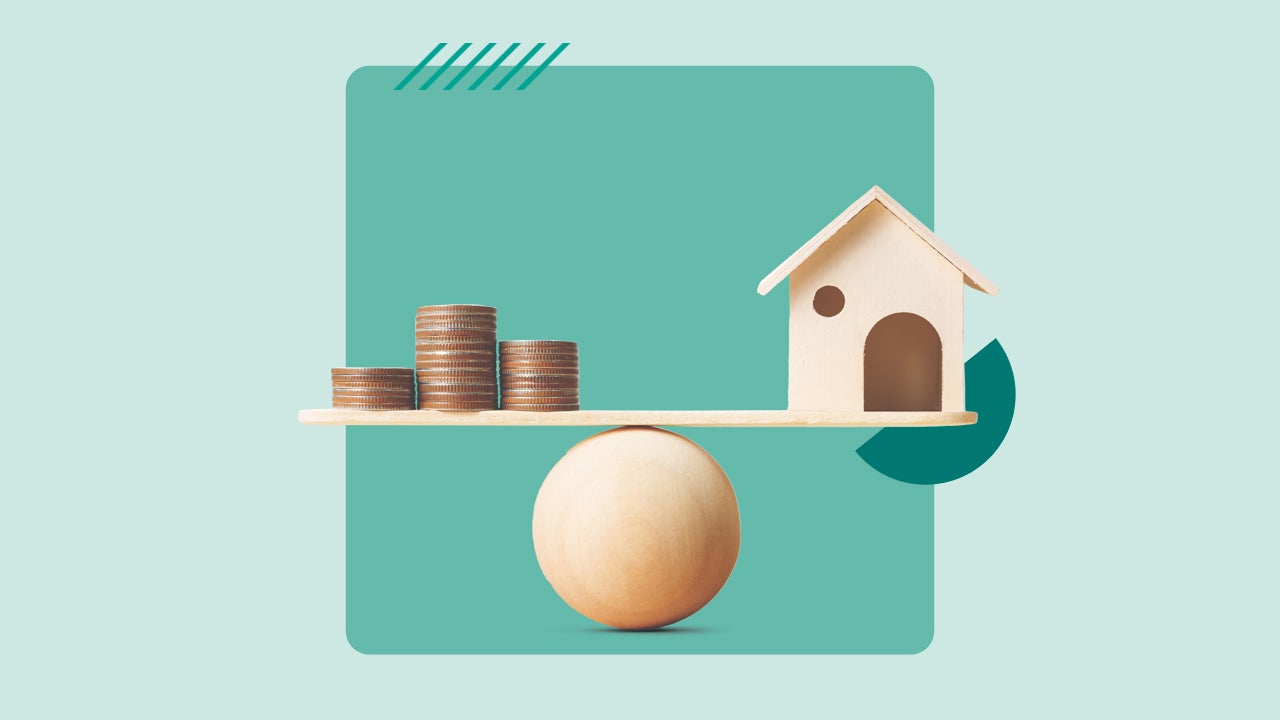What is a prepayment penalty?




Key takeaways
- A prepayment penalty is a fee designed to discourage borrowers from paying off a loan early, before the term is scheduled to end.
- Refinancing your mortgage, selling your home or making extra payments might trigger prepayment penalties.
- Prepayment penalties can only be charged on conventional loans, mainly non-conforming or non-qualified ones.
Considering selling your home, refinancing your mortgage or making a bigger-than-usual mortgage payment? Be careful: Any of these actions could potentially trigger a prepayment penalty from your mortgage lender. Though increasingly rare and limited by law, prepayment penalties do exist, and they can set you back thousands of dollars. Here’s how they work.
What is a prepayment penalty?
A prepayment penalty is a fee a lender charges to discourage borrowers from replacing or terminating their mortgage before the end of the scheduled term. It generally reflects a percentage of the loan principal.
The good news is that most borrowers aren’t subject to a prepayment penalty nowadays. Still, it’s important to confirm whether you will be penalized before you refinance your mortgage, list your home for sale or attempt to pay off your mortgage early — especially if you took out the loan more than 10 years ago.
Why do lenders charge a prepayment penalty?
Interest accrues over the life of a loan, which means lenders make more money on loans with a longer term, such as a 30-year mortgage. If you pay off your loan early — whether by selling, refinancing or making extra payments toward your principal — the lender doesn’t earn as much. So it imposes a penalty for curtailing the years of interest payments it would have reaped.
“Lenders use prepayment penalties to incentivize people to keep the loan for more than just a year or two,” says Kate Bulger, vice president of business development for Money Management International, an Atlanta financial counseling nonprofit.
Types of prepayment penalties
Prepayment penalties come in two varieties, known as soft and hard.
Soft prepayment penalties
If your loan has a soft prepayment penalty, it applies only if you decide to refinance the loan. The penalty amount will be due at closing, so you’ll need to have the cash on hand to pay it.
In some cases, a soft prepayment penalty also applies if you settle a substantial chunk of your mortgage — or all of it — within a calendar year. More on that below.
Hard prepayment penalties
Several different situations can trigger a hard prepayment penalty:
- You refinance your mortgage
- You sell your home
- You pay off your mortgage balance entirely before the term ends
- You pay off a sizable portion of your mortgage
What constitutes a “sizable portion”? “Making a few extra payments toward your principal or paying a little extra every month usually isn’t enough to trigger a prepayment penalty,” says Bulger. But if the sum amounts to more than 20 percent of your loan balance in any given year, the penalty could go into effect.
If your mortgage has a hard prepayment penalty, paying off your mortgage early might not be the best financial decision. Look into how much you’ll pay in penalty fees versus how much you’ll save in interest payments — Bankrate’s mortgage payoff calculator can help crunch the numbers to see if and when prepayment makes sense.
How a prepayment penalty works
If you are assessed a prepayment penalty, you’ll have to pay it as a lump sum to your lender. When you sell your home, that sum is collected from the sale proceeds. When you refinance, it’s part of the closing costs. If you terminate your loan early or pay off a fifth (20 percent) of it within one year, the lender will assess it as a separate fee.
“The penalty is always disclosed with your mortgage rate quote when you shop around for a loan,” says Anna DeSimone, a New York City–based personal finance expert and author. “Typically, you’ll see a statement such as ‘prepayment penalty fee equal to three months’ interest shall be paid in the event the mortgage is terminated within the first 12 months [or other specified time period].’”
The terms and language of an agreed percentage penalty will also be found in your mortgage loan documents.
Are prepayment penalties on every mortgage?
The Dodd-Frank Act established limitations for prepayment penalties, which went into effect in 2014. Today, prepayment penalties can only be charged on conventional loans — those originated and backed by private lenders. So, you won’t find them on FHA, VA and other government-insured or -guaranteed loans.
Among the conventional loans, the penalties are mainly “associated with non-conforming mortgages — loans not sold to or insured by government-sponsored enterprises such as Fannie Mae or Freddie Mac,” says DeSimone. You might also find them on non-qualified (non-QM) mortgages, which are geared toward applicants who don’t fit traditional borrower profiles and so feature looser criteria (but higher fees).
How much are prepayment penalties?
Dodd-Frank also set limits on the size and timing of prepayment penalties. A fee can only be assessed during the first three years of the loan term. The penalty can be up to 2 percent of your principal balance within the loan’s first two years and 1 percent in year three.
For example, say you want to sell your home only one year after you took out a non-conforming mortgage loan to purchase it. Suppose your remaining balance is $300,000. At closing, you might be charged a prepayment penalty of $6,000, which amounts to 2 percent.
How is a prepayment penalty calculated?
Prepayment penalties can be charged in a variety of ways. They may be calculated as a percentage of the remaining loan amount — typically 1 to 2 percent. Federal law prohibits prepayment penalties above 2 percent of the loan amount, so that’s the highest possible amount you could owe.
Penalties may also be equal to a certain number of months’ interest, and some lenders may charge a flat fee instead. Details will be outlined in your loan agreement.
Keep in mind: The Dodd-Frank Act applies to conventional fixed-rate mortgages originating as of January 2014. If you have an older loan or a non-QM loan, you could have prepayment penalties in higher amounts or imposed for longer periods.
Examples of a prepayment penalty
Say you bought a house 19 months ago and owe $200,000 on a non-conforming mortgage loan. Now, interest rates have dropped much lower, and you want to refinance to lower your monthly payments. “In this case, because you are refinancing within the first two years of the loan, you would be charged a $4,000 penalty — equating to 2 percent of your balance,” says Bulger.
In contrast, imagine you inherit a windfall and decide to apply $30,000 toward paying off your $200,000 mortgage faster. “In this scenario, you would not be charged a prepayment penalty,” says Bulger. “That’s because your $30,000 accelerated payment is less than the 20 percent maximum your lender will allow annually as a prepayment amount.”
How to identify a prepayment penalty in your loan contract
Before you sign a mortgage loan contract, it’s always important to understand what you are agreeing to. That applies in particular to prepayment penalties, whose details may be buried in the fine print.
Where to find prepayment penalty information
Federal law requires that lenders disclose all information about any prepayment penalties. If your loan has one, details should be listed in the loan estimate or disclosure documents. You can also ask your lender to show you where you can find the details in the paperwork.
How to interpret a prepayment clause
The prepayment clause in your mortgage agreement walks you through how to pay off your loan early. This section of the paperwork will discuss exactly what you need to do to pay off your mortgage ahead of schedule. It will also outline when you might incur a prepayment penalty, and how much it will be.
Think ahead in your three- to five-year plan. Is there a possibility you could refinance or sell your home within that time, or pay down a substantial amount of the loan? Even if you don’t plan to pay off your mortgage early, it’s still worth understanding the costs just in case, to ensure you won’t be stuck with a loan that’s costly to get out of.
How to avoid a prepayment penalty
If you don’t want to pay a prepayment penalty on your mortgage, consider these tips to avoid the expense:
- Shop the market: Compare loans from different lenders, and pass on those that impose a fee. Note that lenders who do charge a prepayment fee are required to also offer a mortgage option without one.
- Negotiate: If a prepayment penalty is attached to your mortgage, ask to have it removed, or try to negotiate a lower one.
- Time things carefully: If you’re planning a home sale, refinance or accelerated payment strategy, try to wait until you’re beyond the first three years of your loan, after which penalties can no longer be imposed.
What to do when there is a prepayment penalty
Don’t let a prepayment penalty take you by surprise. Even if you plan on being in your home long-term, in which case the fee would not be an issue, life happens and your circumstances may change unexpectedly. If your loan includes a prepayment penalty, it may be worth trying to negotiate with the lender to see if they are willing to waive or lower the fee. Regardless, be sure you fully understand the cost, timeline and implications of any penalties and fees before signing your mortgage documents.
Mortgage prepayment penalty FAQ
Additional reporting by Emma Woodward
Why we ask for feedback Your feedback helps us improve our content and services. It takes less than a minute to complete.
Your responses are anonymous and will only be used for improving our website.
You may also like

What is mortgage loan origination?



